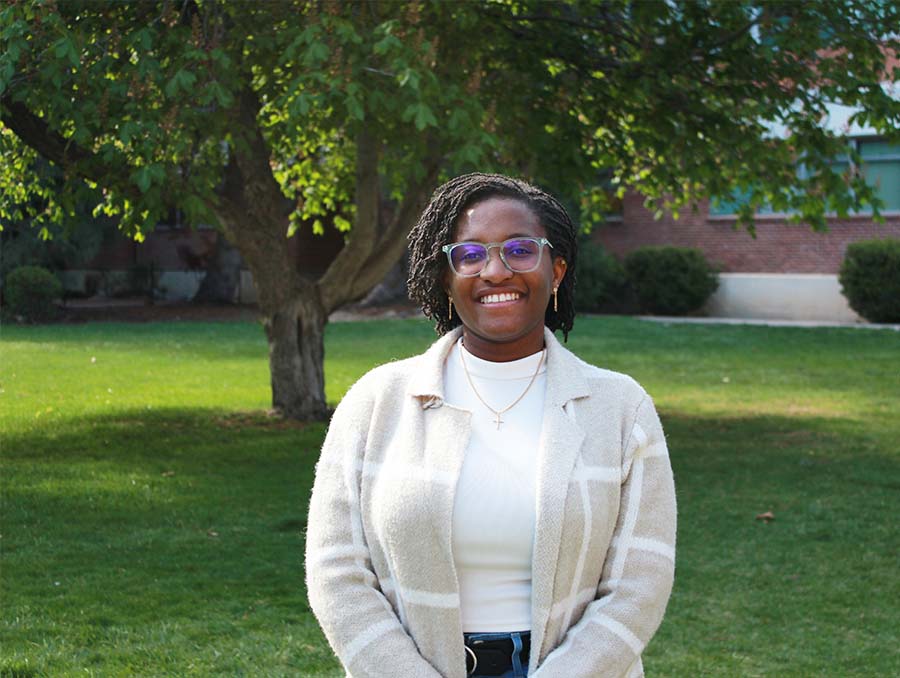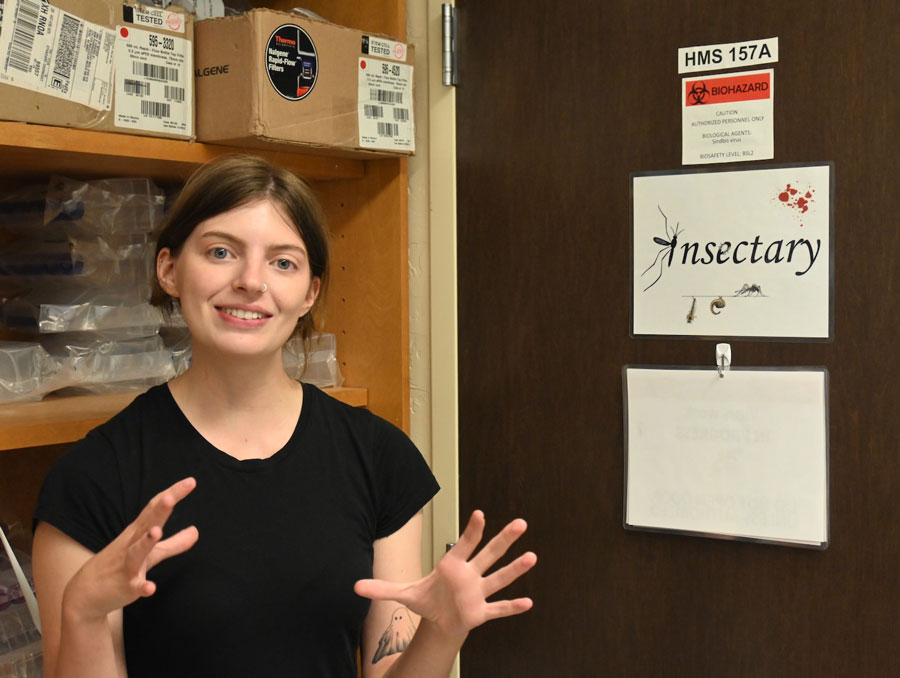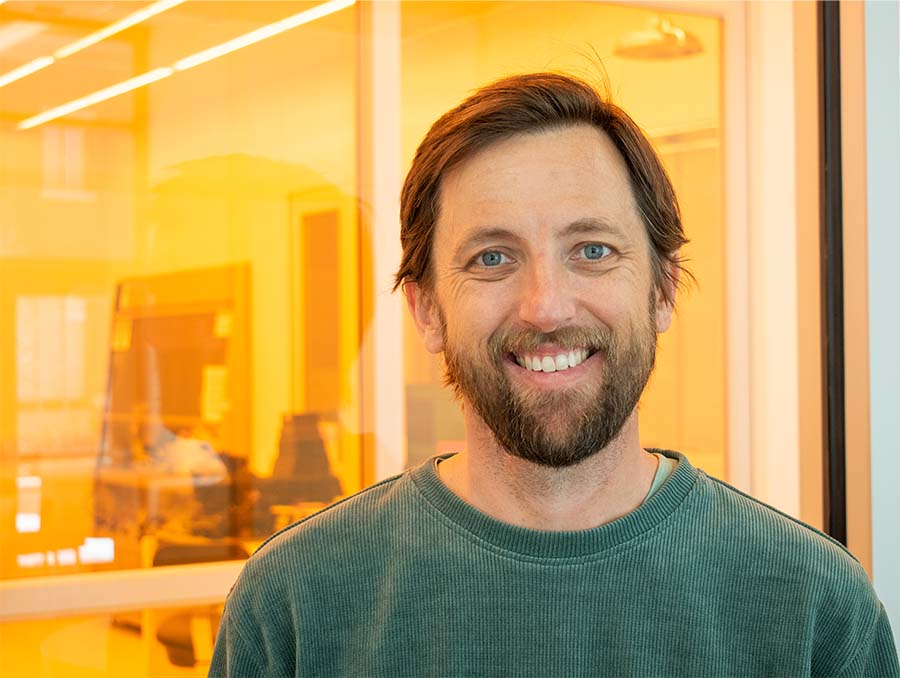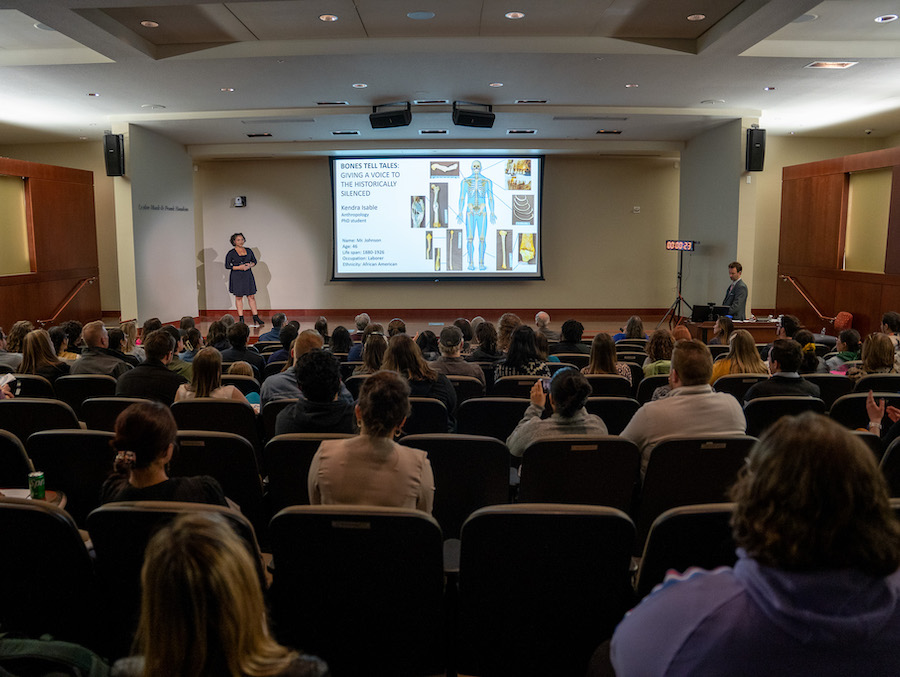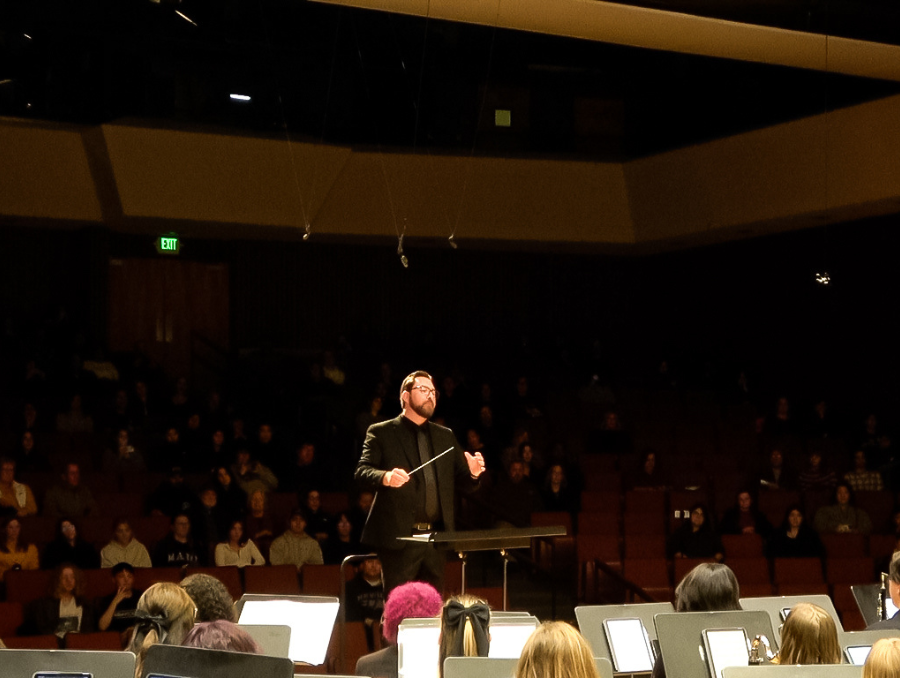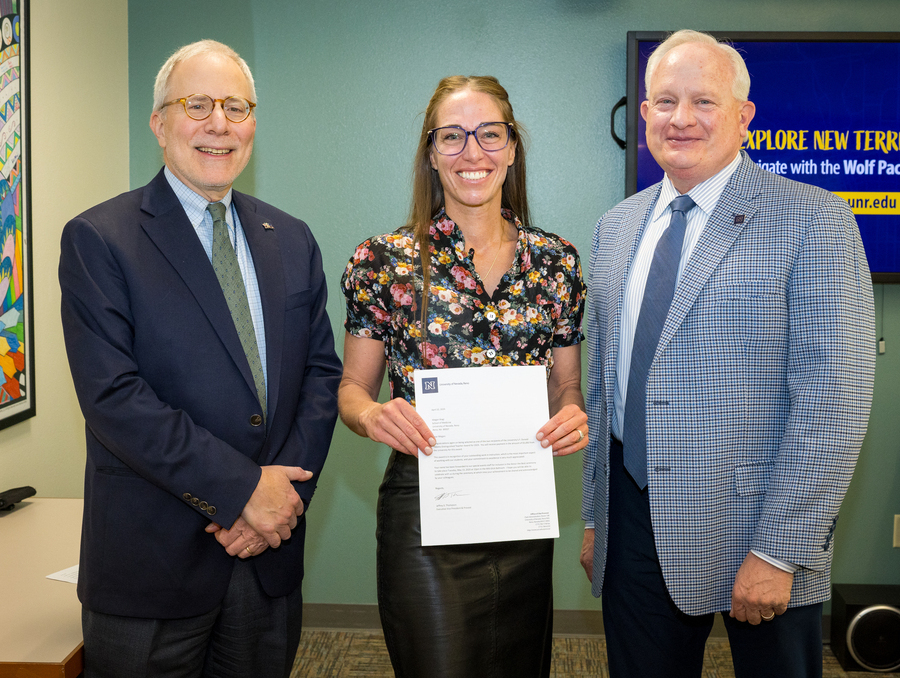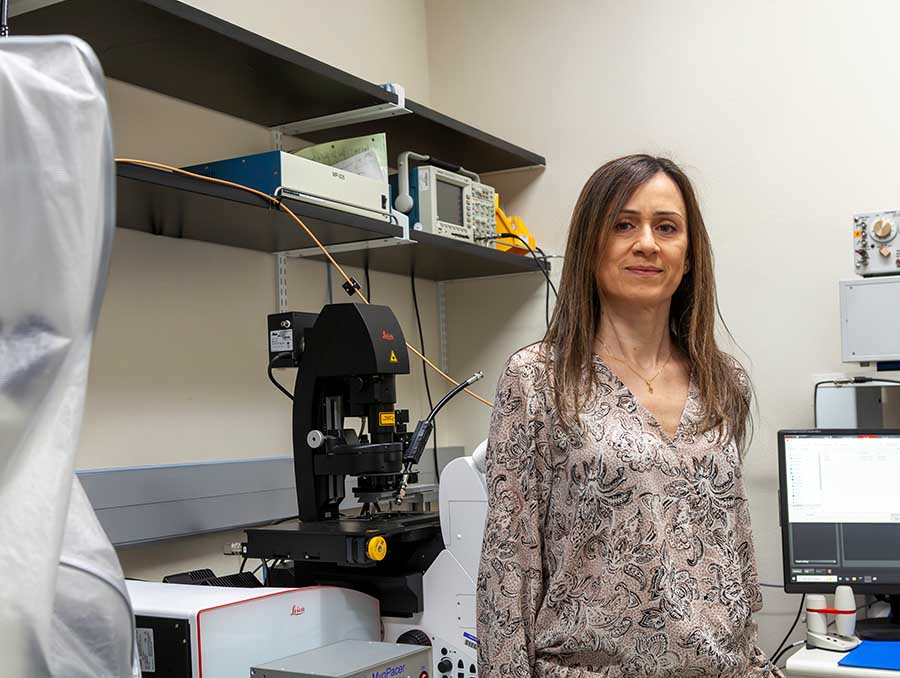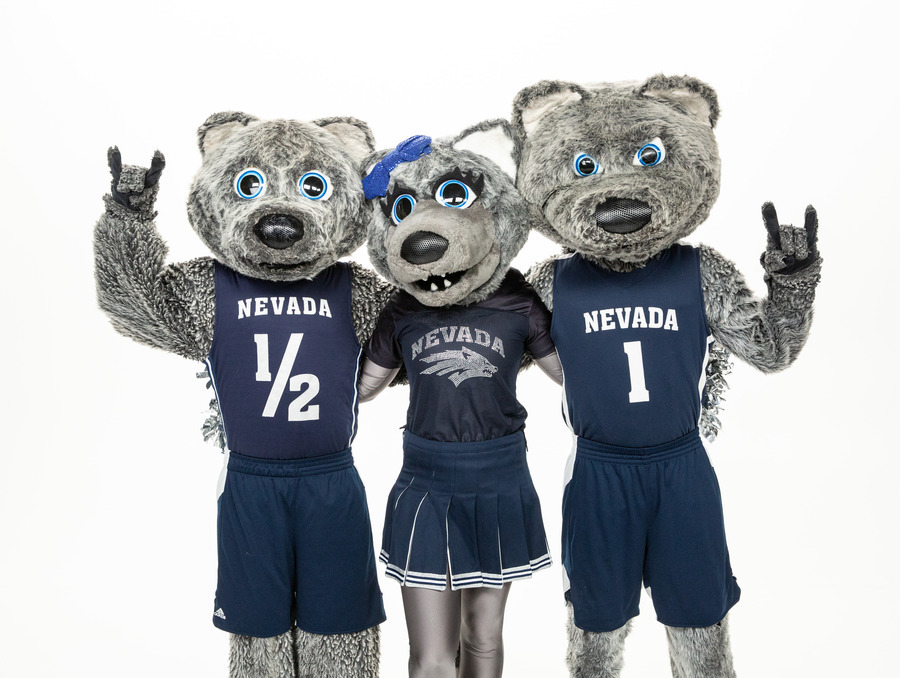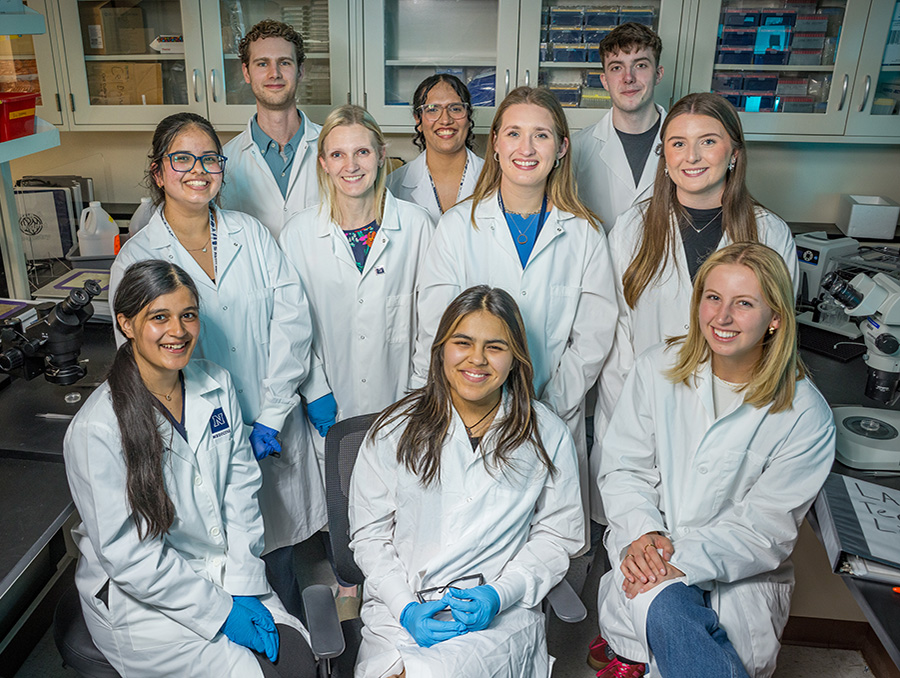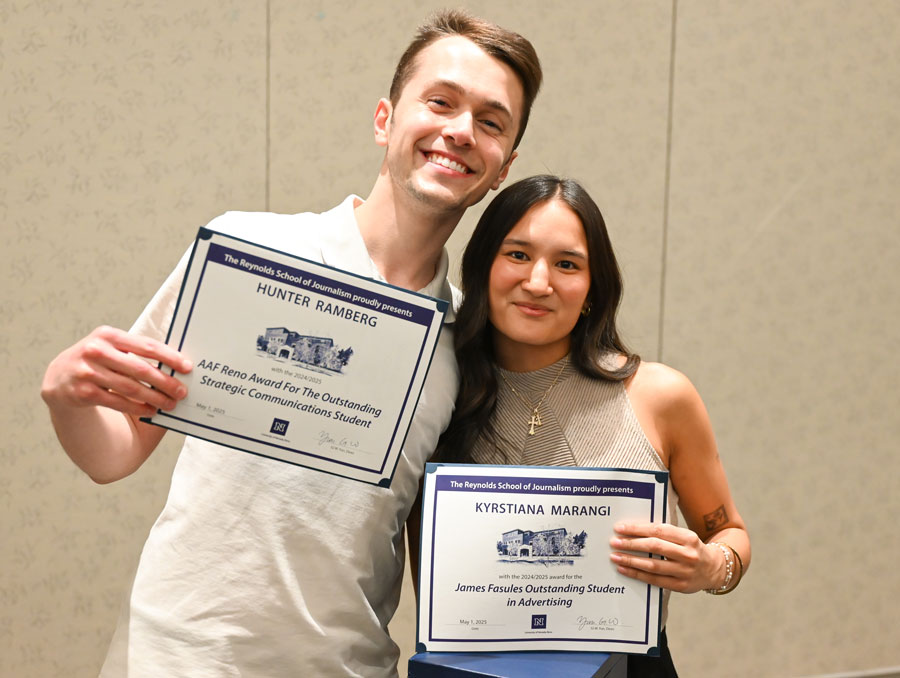President Marc Johnson laid out a compelling vision for the University of Nevada, Reno on Wednesday during his annual "State of the University" address, telling the campus that increased student enrollment, the hiring of additional faculty, a concerted effort to double the national impact of University research and the fostering of a the "college town" concept between the University and the community are all priorities for the state's land-grant institution.
"This is a very special moment," he said. "I'm very confident we can re-balance and grow together."
The themes of helping faculty "re-balance" their work, and of growth, ran strongly throughout Johnson's address, which was held before several hundred people in the Glick Ballroom of the Joe Crowley Student Union, as well as a statewide online audience.
Johnson said the University, with a current enrollment of 18,776 students, is projected to grow to 22,000 students by 2021. By growing at a rate of about 400 students per year, he said, the University will be positioned to increase its revenue. Such student growth would help the University in a number of ways, including providing the University with the opportunity to hire at least 120 new faculty over the next six years.
The emphasis, Johnson said, will be on hiring tenure-track faculty at a rate that will exceed student enrollment growth. This will help faculty, which faced a notable increase in workload during budget reductions of more than $80 million, to "re-balance so each of you can build the rewarding career you expected to accomplish when you arrived in Reno," Johnson said.
By hiring more faculty, reducing teaching workload for tenure-track faculty and working toward trimming the University's current 21-to-1 student-to-faculty classroom ratio to the national median of 18-to-1 for land-grant universities, Johnson said faculty will have more time to focus on research and scholarly pursuit. Johnson also said the administration is working to "provide more administrative and classified positions in key areas."
"It is imperative that we strike the best balance for faculty for time spent in the classroom and time spent pursuing scholarship and research," he said. "The best universities are able to strike this professional balance so faculty members have the time excel in the classroom and in their arena of research and scholarly work. It is also important to remember that we are doing this as we continue to stress the remarkable student experience that our students have during their time at our University."
Johnson said that as efforts are made to grow the student body and the faculty, research would also be at the forefront of a push for the University to join western peers who are part of the Carnegie Foundation for the Advancement of Teaching "very high" research classification. Johnson said the University has already joined western peer research institutions such as Oregon State, Washington State and the Universities of Oregon, New Mexico, Arizona and Utah in other key Carnegie categories such as "Arts and Sciences/Professions balanced, comprehensive doctoral granting with either a medical school or veterinary school."
"We have the same designations except for the 'very high' research category," Johnson said. "We soon will be the size of Oregon and Oregon State."
To increase the University's research effort to achieve the "very high" research category classification, Johnson said the University will grow the number of tenure-track professors, will encourage the formation of more multi-disciplinary research teams and programs in areas that have the potential for "critical mass" and will invest in graduate students by increasing the number of graduate teaching assistantships and increasing graduate student stipends by $1,500 per year.
"Increasing research and graduate program capacity has a major, positive impact on the quality of our undergraduate offerings," he said. "More graduate teaching assistants directly impact capacity in the classrooms and labs; more research activity increases the opportunities for undergraduate research.
"If we do these things, I believe we can increase the impact of our nationally-competitive and world-improving research programs."
Johnson said the University is also actively engaging the community, with good results. He cited the recent spate of headlines in local media that have touted efforts to create a "college town" atmosphere for the Truckee Meadows. Through research, innovation and engagement from campus programs such as the Small Business Development Center, University of Nevada Cooperative Extension, Extended Studies and arts, culture and intercollegiate athletics offerings, Johnson said "never before has the University and our community been more perfectly aligned" for the "college town" concept to be realized.
"We've been working directly with the cities of Reno and Sparks and Washoe County with the help of IBM to develop the Smart Region concept," Johnson said. The Smart Region idea stems from a $400,000 grant from IBM to the region to help diversify and make the economy of northern Nevada more knowledge-based. "How do you develop a Smart Region? Well, the leadership of the community has answered that for us. You start with a nationally competitive research university. That's what a college town is all about."
Johnson said that community interest in the University is high. He cited recent headlines of University announcements of several major gifts received from community foundations totaling $16 million, plus another $7.5 million in pledges for student-centered capital improvement projects.
Johnson praised the effort of the entire campus. He said the University's "beautiful" campus, the high quality of education offered and the "people here who are so friendly" all amount to a well-deserved reputation.
"These comments reflect the character of this University, which is a foundation of our future, in a competitive higher education environment," he said.
